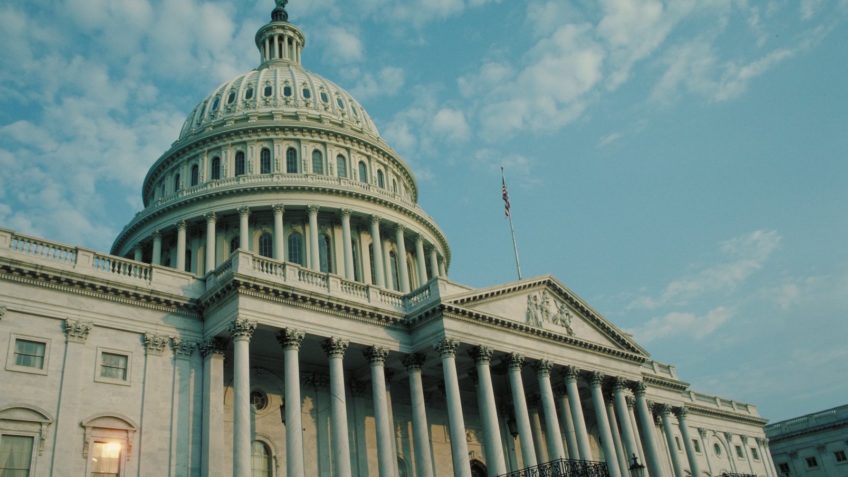
Bill provisionally releases funding for the country’s federal agencies and bodies for at least 45 days
The United States House and Senate approved this Saturday (September 30, 2023) a bill that provisionally releases funding for the country’s federal agencies and bodies. The legislation prevents the North American government from going into “shutdown” from October 1st, the start of the 2024 fiscal year, and maintains activities for at least 45 days.
The shutdown would prevent the US from paying the salaries of civil servants and military personnel and would limit government operations to essential activities such as healthcare and education. The approval comes after weeks of obstacles in the Republican-controlled Lower House of the Capitol.
The project was approved by 335 votes in favor and 91 votes against in the Chamber of Representatives. In the Senate, the legislation that avoids the “shutdown” received 88 votes in favor and 9 against.
Impasse
Initially, McCarthy tried to implement a package that did not consider Democratic interests, who voted, in the majority, against all the proposals presented by him.
On the other side, the most conservative wing of the Republican Party considered the budget cuts foreseen in the President of the Chamber’s proposal to be insufficient and remained adamant.
Given the scenario, McCarthy was unable to approve either the spending to cover the entire fiscal year or a provisional measure to keep the government functioning while reaching a consensus with legislators. The impasse in the Chamber was only overcome on Saturday (September 30, 2023), when the proposal was sent without sending US$6 billion to Ukraine, which was rejected by conservatives.
In the end, the Chamber approved the text by 335 votes in favor and 91 against. Among the deputies who were against the legislation, 90 are Republicans and 1 is a Democrat.
Despite approval in the House, McCarthy’s position remains under threat. The conservative wing of his party, led by Representative Matt Gaetz, from the State of Florida, threatens to remove the president from the position of Speaker of the House, commonly held by the leader of the party with the most seats.
Shutdown
In 1980, then US Attorney General Benjamin Civiletti reformed the Anti-Deficiency Act, enacted in 1884, prohibiting federal agencies from spending more than allowed without prior approval from Congress.
Therefore, annually, the Chamber has to approve 12 appropriations laws to finance public spending by federal departments. If this does not happen, sectors that did not have their expenses approved will come to a standstill – the shutdown.
Since 1976, when the US changed the start of the fiscal year to October 1st – the government has already stopped 21 times. Among these, the most relevant were in 1995, 2013 and 2018.
In 1995, during the government of then President Bill Clinton, activities were suspended due to 21 dias. Disagreements over budget cuts between the Democrat and House Speaker Newt Gingrich led to the shutdown.
In 2013, the Republican-led Congress attempted to use negotiations on Affordable Care Actpopularly known as ObamaCare –legislation approved by former president Barack Obama so that more people could have access to health plans– as a bargaining chip for approval of financing.
At the time, the Obama administration did not accept that funds were withdrawn from the program and Congress did not reach a consensus. As a result, public services were paralyzed by 16 dias.
At the end of 2018, the government entered into shutdown during 35 days (34 full days)until the beginning of 2019. Then-president Donald Trump refused to sign the appropriations bill if $5.7 million for construction of the wall between the US and Mexico border was not included.
This report was written by Journalism intern Eduarda Teixeira under the supervision of assistant editor Ighor Nóbrega.
Source: https://www.poder360.com.br/internacional/congresso-dos-eua-aprova-projeto-que-evita-shutdown-no-pais/

